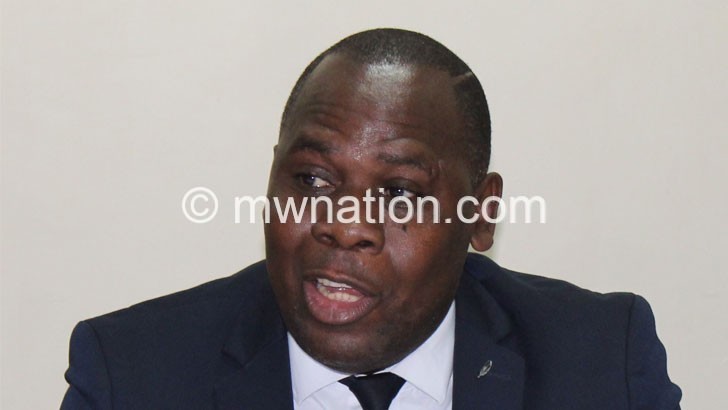US report exposes Malawi rights violations
A United States (US) Department of State report has exposed human rights violations in Malawi.
Human rights activists have since said the report, covering the year 2019 under the former governing Democratic Progressive Party (DPP), should make the Tonse administration reflect on how to handle matters of human rights.
The report, issued by the US Embassy yesterday, shows that during the period, Malawi was marked by significant human rights violations including extrajudicial killings such as the death in police custody of Buleya Lule, a suspect in the abduction and killing of a person with albinism, as well as the torture and arbitrary detention committed by official security forces.

It also adds harsh and life-threatening prison and detention centre conditions, significant acts of corruption, lack of investigation and enforcement in cases of violence against girls and women but also criminalisation of same-sex sexual conduct.
According to the report, government efforts to deal with the problem was hampered by high levels of impunity.
Reads the statement in part: “Significant human rights issues included: extrajudicial killings, torture, and arbitrary detention committed by official security forces; harsh and life-threatening prison and detention centre conditions; significant acts of corruption;
“Lack of investigation and enforcement in cases of violence against girls and women, including rape and domestic violence, partly due to weak enforcement; trafficking in persons; and criminalisation of same-sex sexual conduct. In some cases, the government took steps to prosecute officials who committed abuses, but impunity remained a problem.”
On corruption, the report mentions the K1 billion case involving former president Bakili Muluzi, stating it has stalled due to a “handicapped” judicial system.
Reads the report: “The State’s K8 billion ($10.5 million) corruption case against former president Bakili Muluzi, begun in 2006, remained stalled.
“The judicial system, however, was inefficient and handicapped by serious weaknesses, including poor record keeping; a shortage of judges, attorneys, and other trained personnel; heavy caseloads; and corruption.”
The report further exposes poor prison conditions, including poor sanitation, diet and ventilation, overcrowding, prisoner abuse, detention without charge beyond 48 hours, understaffing, corruption, and insufficient prisoner rehabilitation services.
It further observes that detainees fail to challenge the legality of their detention due to lack of knowledge of statutes as well as lack of access to representation.
The banning of call in programmes on radio by Malawi Communications Regulatory Authority has been listed as an issues which impeded the right of expression in the immediate past administration.
In an interview yesterday, Human Rights Defenders Coalition chairperson Gift Trapence said all administrations have had human rights challenges; hence, the need for the current Tonse Alliance administration to quickly act on the issues.
He said: “We have had the conversation for so long. If the new administration is to be taken seriously, it should shift from rhetoric on policy and the law into action.
“We want government to be clear on how they will protect human rights, but also address all underlining fundamental issues. These issues keep on coming because we fail to address them..”
Policy and governance activist Rafiq Hajat, in a separate interview, said the culture of tolerance in the country is still in infant stages.
“There is no short-term remedy. These issues keep emerging because the acceptance of alternative view and tolerance is not inherent in Malawi. The price of democracy is eternal vigilance, so we need to maintain vigilance to prevent the worst scenarios. The media has to come in more to help address these issues,” he said.
Hajat challenged the Malawi Human Rights Commission to continue monitoring the state of human rights in the country, but also civic educate the masses on such matters.
When contacted, Minister of Information Gospel Kazako, who is also government spokesperson, did not respond yesterday.
However, he earlier told The Nation that the Tonse administration wants active people who can question its operations, adding that the government will continue to stick to the law.
Malawi is a member of the United Nations Human Rights Council which promotes human rights and freedoms for all. The council also calls on member States to address violations of human rights, including gross and systematic violations, and make recommendations thereon.






One Comment